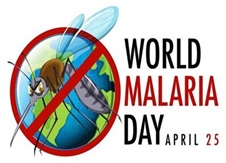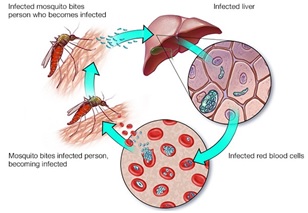

25th April 2022 (7 Topics)
Context
World Malaria day is observed on 25th April.
About
About World Malaria day:
- It is an occasion to highlight the need for continued investment and sustained political commitment for malaria prevention and control.
- World Malaria Day was instituted by WHO Member States during the World Health Assembly of 2007.
- This year the theme is -Harness innovation to reduce the malaria disease burden and save lives.

|
About Malaria
|



